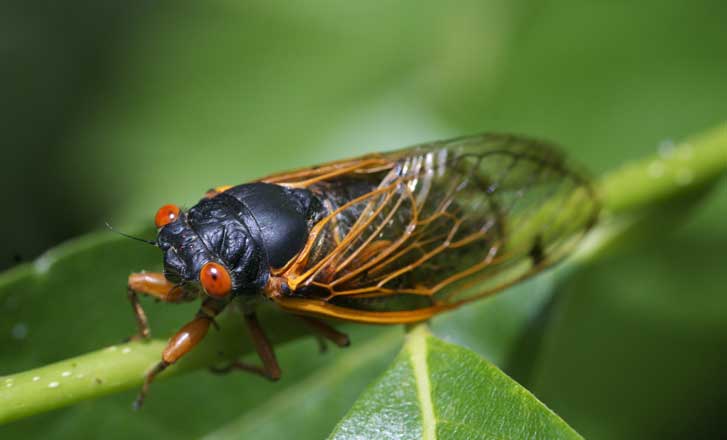Photo Credit: Flickr / CC
Published May 25, 2021
By Makenzie Jones [contributor to The Tennessee Conservative] –
In late spring and early summer 2021, 15 states along the east coast from New York to Georgia, including Tennessee, will be affected by the emergence of Brood X cicadas. The cycle lasts around six weeks from mid-May to late-June.
There are 15 total broods—three 13-year and 12 17-year. These are known as periodical cicadas; the Magicicada specias has the longest developmental period of any insect on the continent. The 13-year are most common in the southeast US and the 17-year in the northern, but because of Tennessee’s location, the state has occurrences of both. Various broods emerge at different intervals, but larger concentrations come some years, such as this one.
There are a variety of misconceptions about cicadas, ranging from their history to their present impacts. Some people associate them with evil because of the Biblical plagues, and they are sometimes referred to as locusts, which are actually a species of grasshoppers. There are fears of crop destruction, but cicadas do not feed on foliage.
*** Click Here to Support Conservative Journalism in Tennessee. We can’t cover News Stories such as this without your support!***
The Nashville Tree Conservation Corps says that cicadas do not cause any significant damage to the root system of trees nearby. The potential for damage is when females lay eggs in very young trees. This can make the branches weak and potentially break later on when more weight is added farther out the limb. Because cicadas prefer small and medium-sized trees, it may be wise to plant new trees in fall or winter after the cicadas die. Apple, pear, dogwood, oak, and hickory trees have been found to be the favored tree types.
Another concern many people have with the emergence of cicadas is the danger to pets. The American Kennel Club addresses the possible health threats to dogs and ways to combat them. Because dogs can hear things we can’t, they may start digging in the ground when they hear the cicadas beginning to move. The prime soil temperature to trigger the start of this process is 64 degrees. After spending 13 or 17 years underground, they can emerge in densities up to 1.5 million per acre.
Cicadas do not bite or sting, but ingesting more than a few can lead to severe upset stomach, vomiting, pain, and bloody diarrhea. This may require emergency vet assistance including IV fluids and medications. Attempting to eat them, dogs can choke on the stiff wings or exoskeletons, have an allergic reaction, or consume pesticides. During the cicada season, the babies will dig back into the ground, but the adults will die, and their exoskeletons will remain on the ground, so it is important to beware even after the noise dies down.
The University of Tennessee Agriculture department shared a study on cicadas, saying that when the females lay their eggs, each slit in a branch will have 24-48 eggs, and each female can lay a total of 400-600 eggs. When the nymphs emerge, it is usually after sunset, when they molt and are soft and white-colored, but quickly harden and darken.
The sounds, sometimes called songs, that we hear are mating calls from the males, coming from membranes on their abdomens. Females respond by clicking their wings.
It may seem like cicadas do not serve much purpose for the ecosystem, but they do in fact provide benefits. While they are underground, they help the soil remain bioactive and release nutrients and organic matter back to the soil when they die. They eat and decompose other organic life, providing nutrients for plants and food for other animals. Cicadas have even been eaten by humans, most of them claiming that they taste like asparagus.
Turkeys and copperheads are two animals common in the area that have been found to eat cicadas. TWRA released a photo from the last day of the 2021 spring turkey hunting season, Sunday May 15, of a Jake that was harvested in Jefferson County with a stomach full of cicadas.

About the Author:

Makenzie Jones is a current MBA student at the University of Tennessee at Chattanooga and is a member of the cross country and track teams.
She earned undergraduate degrees in Communications and Sports & Outdoor Recreation. Outside of school, she enjoys scrapbooking, cooking, writing, water and snow skiing, and spending time with her family and pets in her hometown of Jefferson City, TN.




